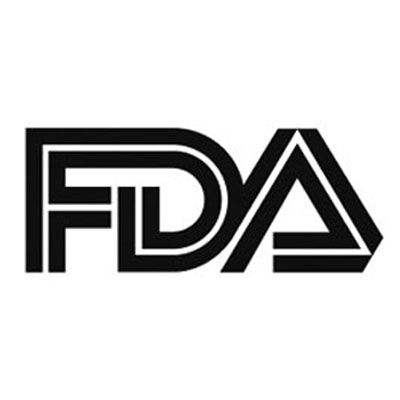FDA Grants Orphan Drug Designation to RNL in Recurrent Glioblastoma
The FDA has granted an Orphan Drug designation to rhenium nanoLiposomes for the treatment of patients with recurrent glioblastoma.

The FDA has granted an Orphan Drug designation to rhenium nanoLiposomes (RNL) for the treatment of patients with recurrent glioblastoma, Plus Therapeutics announced in a press release.
“Receiving FDA Orphan Drug designation and approval to advance the trial into Cohort 6 are key milestones in our development of this treatment for recurrent glioblastoma,” said Marc Hedrick, PhD, president and chief executive officer of Plus Therapeutics, in a statement. “We believe RNL has the potential to prolong survival for patients with malignant brain tumors and that of other difficult to treat radiosensitive tumors.”
With an Orphan Drug designation, the development of RNL will be supported by the FDA through market exclusivity upon regulatory approval, exemption of FDA application fees, and tax credits for qualified clinical trials.
In the phase 1 multicenter dose-finding ReSPECT trial, RNL is under investigation as treatment of this patient population. The most recent report from the developer states that the trial plans to proceed to cohort 6 after the Data Safety and Monitoring Board gave its approval. In cohort 6, patients will receive an increased drug volume of 3.8 mL and a radiation dose of 22.3 mCi.
In July, the trial completed its fifth dose escalation and it was announced at that time that the study was expanding to another center, University of Texas (UT) Southwestern Medical Center, in addition to the existing sites, UT Health Science Center at San Antonio and UT MD Anderson Cancer Center.
RNL is reported to deliver a high dose of radiation with up to 25 times greater concentration than external beam radiation. The treatment goes directly into the brain tumor. The developer describes the treatment as safe, effective, and convenient.
The ReSPECT trial (NCT01906385) is actively recruiting patients who are 18 years of age or older with histologically confirmed glioma, progression by RANO criteria, and an ECOG performance status of 0 to 2, as well as a life expectancy of at least 2 months, adequate liver and renal function, and satisfactory hematologic status. Patients who receive antiepileptic medications are required to have a 2-week stable dose without seizure prior to starting study treatment and all patients were required to be bevacizumab (Avastin)-naïve with no greater than 1 recurrence.
Patients with glioblastoma will be excluded from ReSPECT if they have shown evidence of acute intracranial or intratumoral hemorrhage, cannot undergo MRI, have not recovered from the National Cancer Institute Common Terminology Criteria for Adverse Events v4.0 Grade ≤ 1 from adverse events, have a serious intercurrent illness, have inherited bleeding diathesis or coagulopathy with the risk of bleeding, received certain prior anticancer therapies, have multifocal progression or involvement of the leptomeninges, have a psychiatric condition that may interfere with study requirements, and/or have an infratentorial disease.
ReSPECT is assessing the maximum tolerated dose of RNL as its primary end point. The secondary end points being explored in the study are dose distribution, response rate per RANO criteria, and disease-specific progression-free survival. The prospective completion date for the study is January 2025.
References:
Plus Therapeutics, Inc. receives FDA Orphan Drug designation for its novel glioblastoma treatment. News release. Plus therapeutics, Inc. September 1, 2020. Accessed September 2, 2020. https://bit.ly/3bjB40N
Plus Therapeutics completes fifth dose escalation cohort of the respect™ glioblastoma clinical trial and expands trial sites. News release. Plus therapeutics, Inc. July 28, 2020. Accessed September 2, 2020. https://bit.ly/32NDG3b
FDA Approves FoundationOne CDx as Companion Diagnostic for Tovorafenib in Pediatric Low-Grade Glioma
January 17th 2025FoundationOne CDx is now FDA-approved as the first companion diagnostic for tovorafenib, enabling targeted treatment for relapsed/refractory pediatric low-grade glioma with BRAF mutations or rearrangements.
Read More